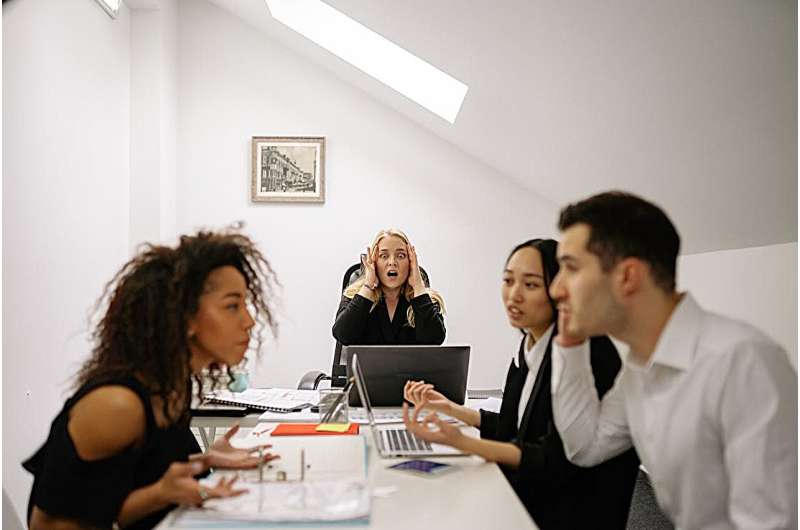This article has been reviewed according to Science X's editorial process and policies. Editors have highlighted the following attributes while ensuring the content's credibility:
fact-checked
peer-reviewed publication
trusted source
proofread
Rude at work? Feeling guilty can make you a better, kinder worker

We've all done it. A bad night's sleep or a tough commute made us cranky, and we lashed out at a coworker who did nothing wrong. What can we do to make up for it?
According to a new study published in the Journal of Business Ethics, embracing our guilty feelings can help us make up for our bad behavior by encouraging us to act more politely and work harder the next day.
"We found that anyone can be rude at work, because anyone can have a bad day. And you end up feeling bad," said Klodiana Lanaj, Ph.D., a University of Florida professor of management in the Warrington College of Business and co-author of the new study.
"Because you feel guilty, the next day at work, you work harder, and you're more careful not to be rude again. It's self-correcting over time. Which might explain why some people are rude some days and not rude other days."
A deep body of workplace research has shown how rudeness spreads within organizations, acting like a contagious disease. But few studies have asked how acting rudely affects the people who are unkind, or what employees do after being mean to coworkers.
To uncover how workers respond to acting rudely, Lanaj, UF doctoral student Daniel Kim, and Texas A&M University professor Joel Koopman, Ph.D., conducted three studies tracking people's daily workplace habits and encouraging them to recall times they acted rudely to their peers.
They discovered that workers who shouted at or excluded coworkers felt guilty and were more likely to vent to their partners at home that evening. But the next day, they put their head down, worked harder, and were less likely to be rude again, seemingly in an effort to repair their relationships and reputation.
"When you're being uncivil, it comes back to hurt you as well," Kim said. "Guilt is this complex phenomenon. It's burdensome, but it can also help us recover by reducing incivility and engaging more at work."
Of course, it's best to avoid being unkind in the first place, the researchers said. It hurts other people, and it can infect the workplace.
"But we can take solace in this idea that people have opportunities to correct their behavior by working harder, apologizing, and being more polite," Lanaj said.
More information: Daniel Kim et al, Incivility Affects Actors Too: The Complex Effects of Incivility on Perpetrators' Work and Home Behaviors, Journal of Business Ethics (2024). DOI: 10.1007/s10551-024-05714-y
Journal information: Journal of Business Ethics
Provided by University of Florida



















